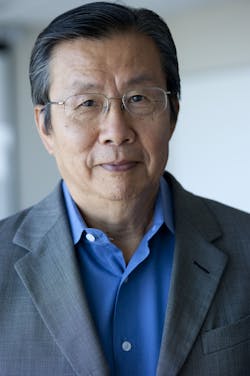
Q:Two of my students want me to help them in their businesses. Should I pick one? If I help both, how do I handle potential conflicts?
A: Assuming you will act honorably, my recommendation is to help both. Why should you have to take sides choosing between your "children?" Conflicts are unavoidable, so it is always a tradeoff between potential benefits and risks. The first rule is to be open and fully disclose your involvement to all parties. The parties can then use their judgment to not disclose to you any information they really want to keep secret. You will, of course, never disclose any proprietary information, but why shouldn't you share information that is generally known in the public domain and is beneficial to both companies? Also, you can play a role to encourage responsible competition and even promote strategic alliances. My feeling is both companies will have more to gain than to lose.
Q: What are the pros and cons for my joining a venture capital (VC) firm? Having worked in business development in a start-up company for two years and having a Ph.D. in physics should position me well to excel as a VC.
A: It is OK to be a VC. The question is what makes a VC successful and how can you prepare for it? Quite a number of technical people are crossing over to the financial side, but if I were you, I probably would not make the transition now—many VC firms are cutting back because their financial performances have been very poor post "bubble."
You can, of course, work your way up in a VC firm, but really respected VCs usually have had a successful track record in an operational role with profit-and-loss responsibilities. The ability to make wise investment choices and to mentor entrepreneurs usually requires a deeper understanding gained from doing rather than from conceptualizing in a business development role. Technical knowledge per se is not as highly valued because it is more a supporting function in a VC firm. When necessary, superficial understanding in a specific technical area can always be supplemented by talking to experts, most of whom are quite willing to provide their opinions freely. My recommendation is for you to find a project management job in a well-managed company that will give you hands-on experience to become an industry insider.
Being a VC may appear attractive at a distance—making a lot of money while passing judgment on what entrepreneurs do. But it can be quite frustrating when you have the responsibility for the outcome but without the authority to take action, which is how most VCs would describe their job. Their perception is they don't get the full picture of a company from management, and are powerless to act even though certain actions may seem obvious. Probably the biggest occupational hazard is that the very nature of the job can breed arrogance; it is easy to get accustomed to "the one who has the gold makes the rules." Having said that, I must admit I enjoy my role as an investor. Having almost 30 years of experience building companies, I have learned that I do not have infinite wisdom to be right all the time, and I simply enjoy the role of being a mentor.
Q: Why do executives get triggers in their stock options and I don't?
A: The usual trigger to accelerate vesting of stock options is an acquisition. The options for people whose services are needed after an acquisition are usually converted to equivalent options by the acquiring company. Top executive jobs such as the CFO are at risk because the acquiring company usually wants immediate control with their own people. Their options are often vested with a "single trigger". CEOs usually have "double trigger" written into their options, the first trigger being the acquisition and the second trigger effective if the CEO is asked to leave.
About the Author
Milton Chang
MILTON CHANG of Incubic Management was president of Newport and New Focus. He is currently director of mBio Diagnostics and Aurrion; a trustee of Caltech; a member of the SEC Advisory Committee on Small and Emerging Companies; and serves on advisory boards and mentors entrepreneurs. Chang is a Fellow of IEEE, OSA, and LIA. Direct your business, management, and career questions to him at [email protected], and check out his book Toward Entrepreneurship at www.miltonchang.com.
